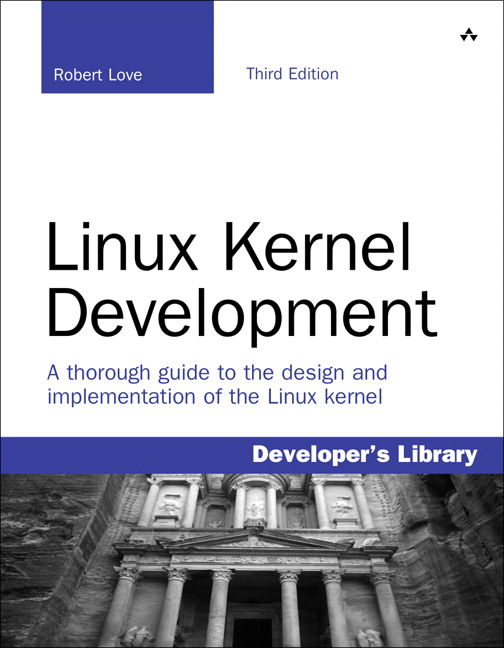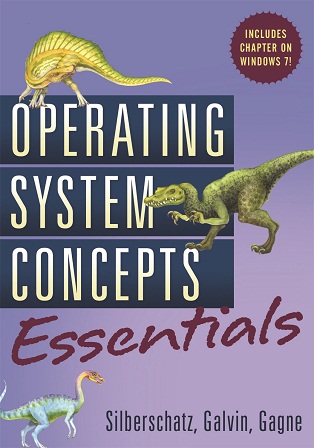|
GENERAL INFORMATION
- http://www.cs.columbia.edu/~nieh/teaching/w4118
|
Meeting Times and Location:
Fall 2012, TR10:10-11:25AM Location Mudd 833 and Mudd 539 (overflow)
Prerequisites:
COMS W3137 Data Structures and Algorithms,
COMS W3157 Advanced Programming (or good working knowledge of C), and
COMS W3827 Fundamentals of Computer Systems
Description:
Design and implementation of operating systems. Topics include
process synchronization and interprocess communication, processor
scheduling, memory management, virtual memory, interrupt handling,
device management, I/O, and file systems. Hands-on study of Linux
operating system design and kernel internals, including work with
Android devices. Experience with
commercial virtualization tools and open source software. The course
was the first to introduce virtualization as a tool for teaching
computer science, specifically operating systems. For more
information, see
Dr. Dobb's Journal.
Enrollment:
Because of enrollment demand exceeding room capacity, an overflow room
will also be available for students to watch the class live on video.
However, the Fall 2012 enrollment for this class will still be limited.
Please register early if you plan to take this class in Fall 2012. If the
class is full and you would like to take the class, please complete this
form.
Looking for a Job?:
One out of four the best dozen jobs in America are IT related,
including the best job! Many of these jobs leverage the concepts and
skills you will learn in this class. For more information,
see the most recent CNN Money article on the
Best
Jobs in America. Also, see a recent technology demand and supply report
that identifies Linux skills as one of the few with continual rising demand,
and a list of 5 high-paying, low-stress jobs including
being a computer software engineer who designs operating systems.
|
|
INSTRUCTIONAL STAFF
|
- Instructor:
Prof. Jason Nieh,
212-939-7160, office hours: TR9:00AM-10:00AM CSB 518
- TA:
Naser AlDuaij, office hours: TR3:00PM-5:00PM TA Rm
- TA:
Alex Van't Hof, office hours: MF10:00AM-12:00PM TA Rm
- TA:
Jiabin Hu, office hours: W4:00PM-6:00PM TA Rm
- TA:
Yi-Hong Lin, office hours: R12:30PM-2:30PM TA Rm
- TA:
Chao Song, office hours: M4:00PM-6:00PM TA Rm
To email the instructional staff, please use the w4118 staff mailing
list, which is listed in the intro section of the class
in Courseworks.
For homework-related questions, please use the
class discussion
forum.
|
|
COURSE MATERIALS
|


- Required Text:
Operating
System Concepts Essentials, Avi Silberschatz,
Peter Galvin, and Greg Gagne, John Wiley and Sons, New York, NY,
2010 (available from
Amazon.com
and Columbia University
Bookstore).
See
also Errata.
- Required Linux Reference:
Linux Kernel Development
(3rd Edition), Robert Love, Addison-Wesley
Professional, New York, NY, 2010 (available from
Amazon.com
and Columbia University
Bookstore). Also available online.
- Optional Linux Reference:
Professional
Linux Kernel Architecture, Wolfgang Mauerer, John Wiley
and Sons, New York, NY, 2008 (available from
Amazon.com
and Columbia University
Bookstore).
- Computing Requirements:
You should also have your own computer to take this class, on which
you
will install
either VMware
Workstation for Windows or Linux,
or VMware Fusion
for Mac.
A CS account
will provide access
to VMware
licenses and software at no additional cost.
Students will also require use of
Android
Nexus 7 Tablets as will be discussed further on the first day of class.
|
|
COURSE GRADE
|
| 45%:
|
Homework Assignments:
There will be six homework assignments. Your lowest homework
assignment
grade will be dropped in calculating your grade. Each assignment will
have
both non-programming and programming problems. The programming
problems will involve kernel-level programming in the Linux operating
system. |
| 15%:
|
Grading Assignments:
Students will be anonymously assigned homework assignments to grade as
part of a peer-to-peer grading process to help better understanding
the homework assignments. The grading process will include an initial
review phase, a rebuttal phase, and a final review phase.
|
| 15%:
|
Midterm:
The midterm is one class period, closed book, calculator permitted.
The midterm will cover all material discussed in the course up to the
week before the exam.
|
| 25%:
|
Final:
The final exam is scheduled at the normal final exam time for this
class period. The final is closed book, calculator permitted. The
final
is cumulative and will cover all material discussed in the course.
|
| 0%:
|
No "extra credit" work
|
|
HOMEWORK POLICY
|
|
All work is due by the date and time specified in the respective
assignment;
there are no extensions. It is much better to submit partially
complete homework on time and get partial credit for your work than to
submit late homework for no credit. Homeworks submitted after the
respective deadlines when they are due are considered late. Late
homeworks will not be accepted unless there is a valid medical or
family condition with appropriate documentation submitted to the
instructor.
Submissions should be made electronically using
Git, a distributed version control
system.
You should use Git for version control of all your code for this
class, and we will monitor code check ins to see how your work is
progressing and who is doing the work. Each submission will be time
stamped. Proper submission is your responsibility; we strongly urge
you to make sure you understand the submission process and submit
early. We also urge you to check out your submissions and test them
to make sure the submissions are complete. You can always submit
again up until the deadline, so we strongly urge you to submit well
before the deadline and then submit again if you have a more updated
assignment to submit later.
After the submission deadline, all homework submissions will be
publicly viewable by all students in the class.
|
|
GRADING POLICY
|
If you disagree with any homework grade, submit your grievance via
email to the w4118 staff mailing list, documenting the merits of your
case.
The grader responsible will respond likewise via email. If you are
still
dissatisfied you may appeal in like manner to the instructor, who will
only examine the email record of the dispute, and will respond in
email.
If you disagree with any exam grade, submit your exam and grievance in
writing (not email) to the grader responsible, documenting the merits
of your case. The grader will respond likewise in writing. If you
are still dissatisfied you may appeal in like manner to the
instructor, who will only examine the written record of the dispute,
and will respond in email.
For a grade dispute to be
considered, the written grievance must be submitted in writing within
two weeks of when the respective assignment or exam is returned.
|
|
PROGRAMMING POLICY
|
|
For your convenience, all programming can be developed on any
Linux machine. However, only those programs which compile using the
gcc compiler in the VM you are given to work with will be graded.
Furthermore, it is critically important that all submitted program
listings and executions be thoroughly documented.
All programs must compile and all kernels you modify must also boot;
programs and kernels that do not compile and boot will receive a grade
of zero. Usually the homework assignments will only state the
major objectives of the program to be written; it will be often up to
you to make design decisions about things like I/O, efficiency, error
handling, and so on. Make sure you provide adequate test cases to
indicate the correctness and robustness of your approaches.
|
|
COLLABORATION / COPYING POLICY
|
|
We encourage you to help one another in understanding the concepts and
principles needed to do the homework assignments for this class.
However, what you turn in must be your own, or for group projects,
your group's own work. Copying any part of other people's code,
solution sets, or from any other sources is strictly prohibited.
Students in previous years have often been caught cheating by copying
answers from the web, which turn out to be incorrect. The homework
assignments must be the work of the students turning them in. Anyone
found violating the class collaboration policy will be punished
severely.
You must explicitly cite ALL sources of information that you
reference as part of your homework submissions. For each citation,
you should describe how that source was referenced. You do not need
to cite conversations with instructional staff or the course
textbooks, but you should cite everything else, including any
conversations with other students related to the homework
assignments, and any Web sites used. Referencing any uncited sources
other than the course materials is considered cheating.
All students or groups who are determined to submit homework that
violates the class collaboration policy will receive a zero on the
respective homework assignment for the first offense, and will receive
an F for the course for the second offense. More serious cases of
cheating, such as copying someone's work without their knowledge or
cheating on exams, will result in the person cheating receiving an F
for the course.
In addition, offenses will be reported to the Dean's office, which may
result in further disciplinary action, including suspension or
expulsion from the program. Penalties will be given without
discussion or warning; the first notice you receive may be a letter
from the Dean. Note that you are responsible for not leaving copies
of your assignments lying around and for protecting your files
accordingly.
|
|
OPEN DOOR POLICY
|
|
We would like the course to run smoothly and enjoyably. Feel free to
let us know what you find just, good, and interesting about the
course. Let us know sooner about the reverse. See us, leave us a
note, or send us email.
|
|

